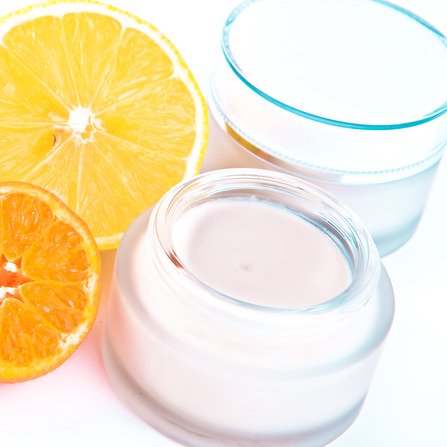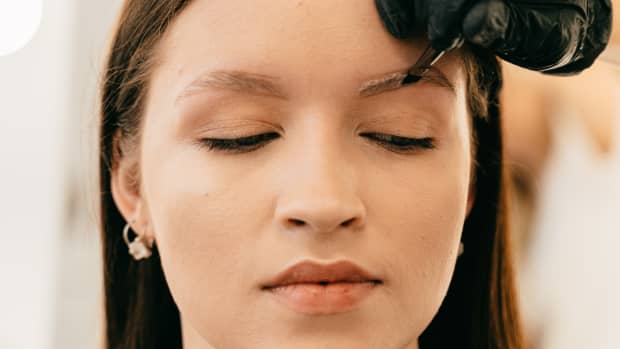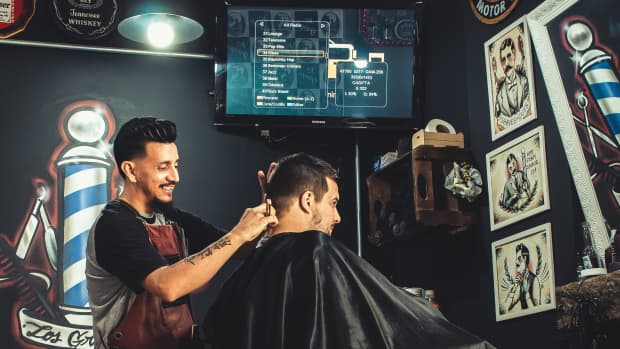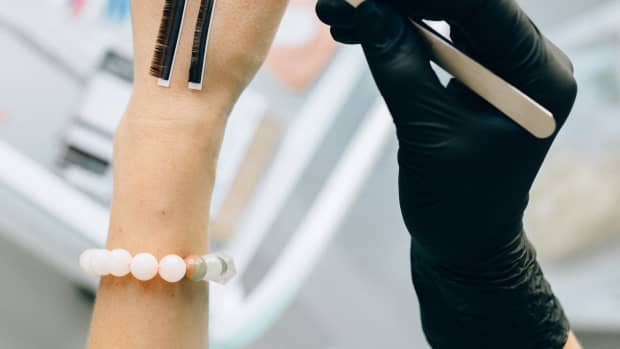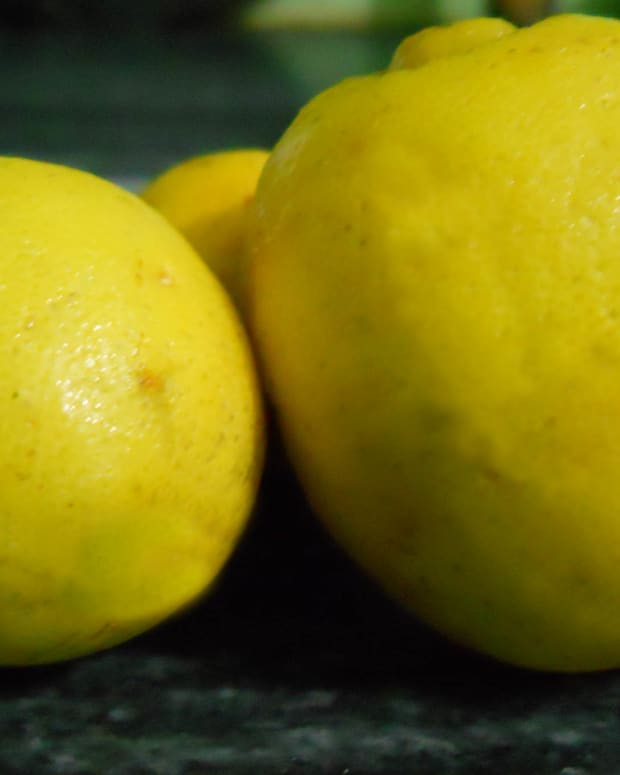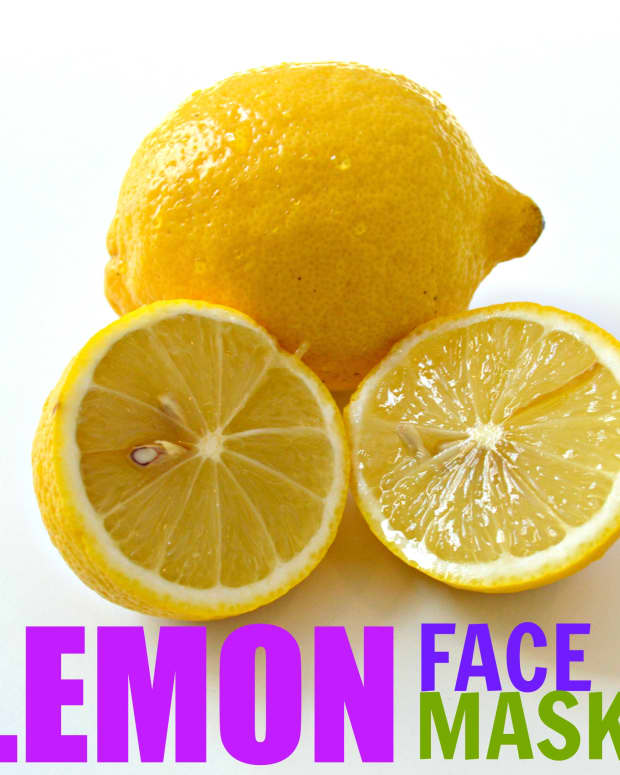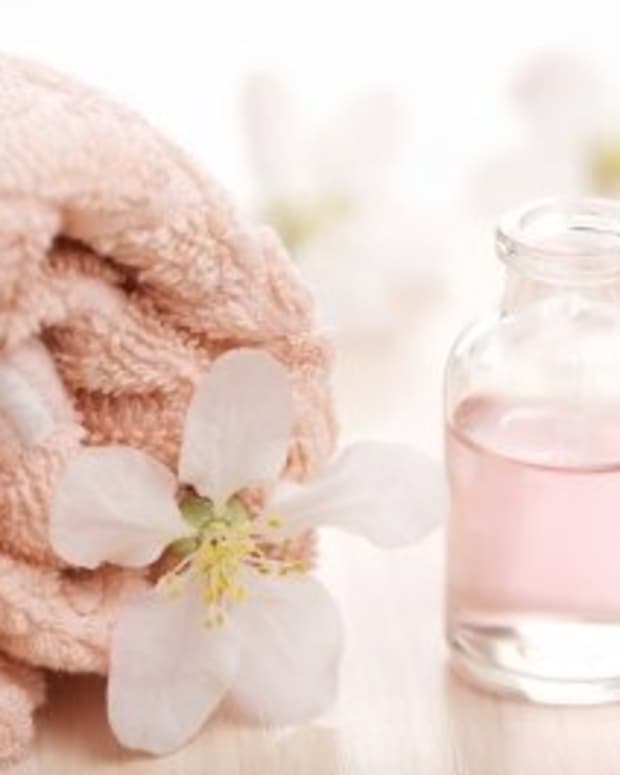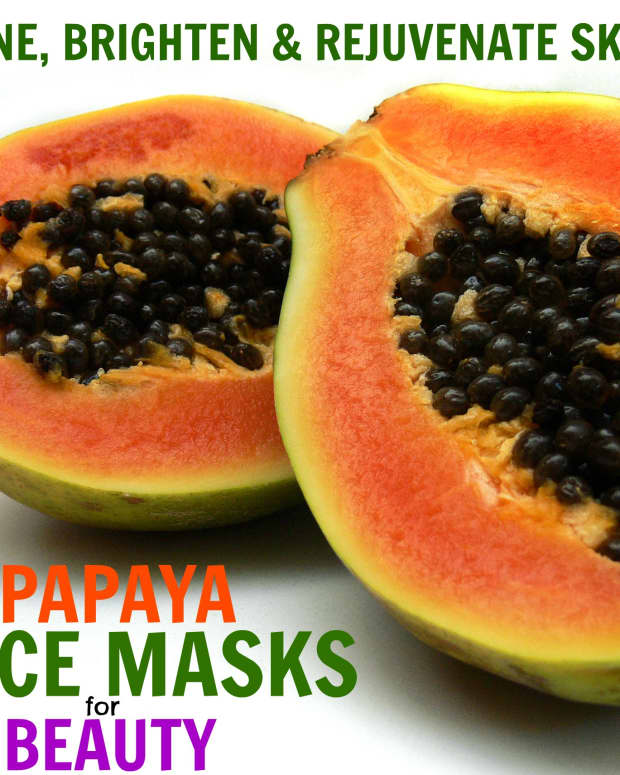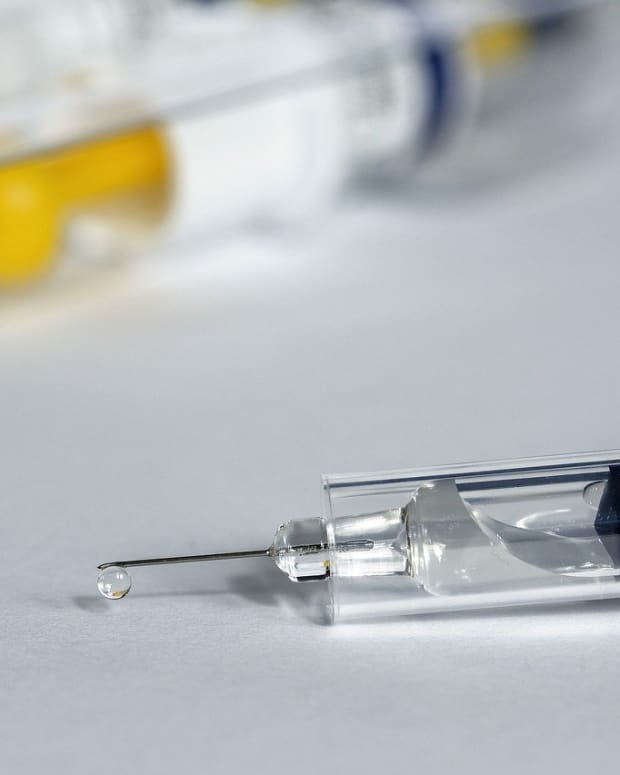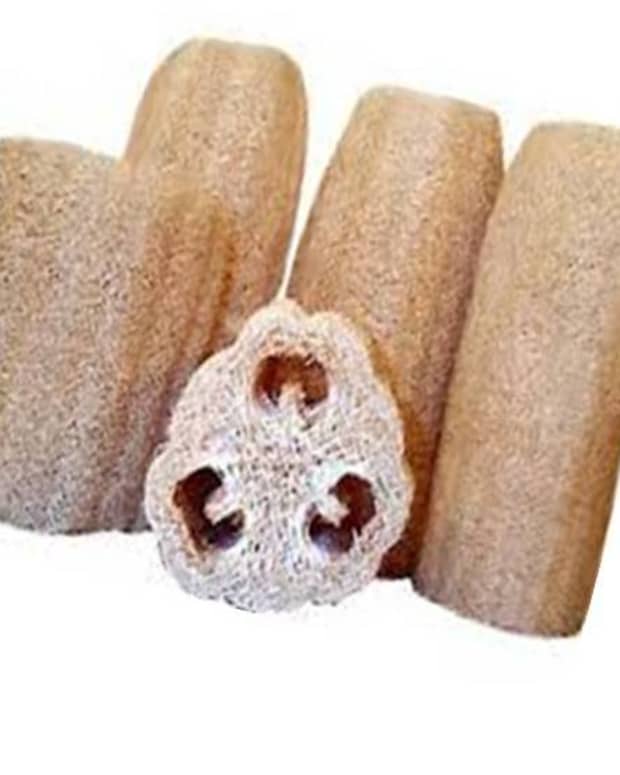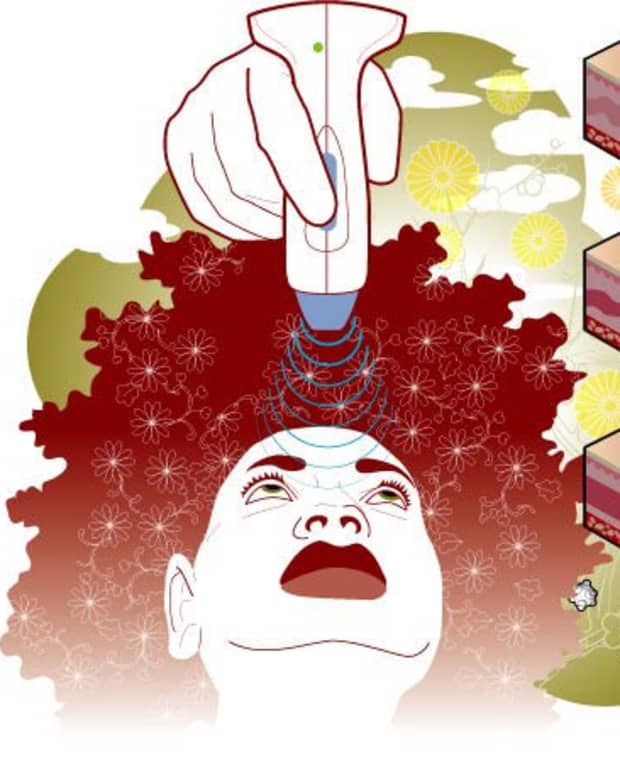Can Lemon Juice Really Lighten Skin?
Angie is a science teacher with an interest in a wide range of topics.
Lemon Juice and Skin Lightening
Lemon juice is commonly suggested as a skin lightening treatment, but does it really work?
The short answer is YES it does, but it does take time, and it is not a permanent solution.
Citrus fruits, especially lemons, are effective for treating dark spots, acne damage and freckles because they are packed with vitamin C, which is a powerful anti-oxidant. When applied topically to the skin, lemon juice has been shown to play several roles in preventing hyperpigmentation.
Exfoliation
Vitamin C or ascorbic acid is a natural exfoliant that can help to lighten the skin and improve skin tone. The upper layer of the skin (the epidermis) is exfoliated by the acid, removing old skin cells, including old cells with dark pigmentation.
The outer layer of our skin naturally exfoliates every 3–4 weeks as new cells move upwards from the basal layer to the epidermis, gradually dying after they move up. Vitamin C reduces the cohesion between the cells in the outer skin layer, causing them to slough off. This stimulates the production of new skin cells, which makes the skin appear brighter and more youthful. After several months of regular use, there will be a noticeable reduction in fine lines and an overall improvement in skin tone and texture.
Stimulates Collagen
As a powerful antioxidant, vitamin C can help to minimise the cell damage caused by free radicals, and it has been shown to stimulate the production of skin collagen. Vitamin C is water soluble, so it can be readily absorbed into the skin to protect non-water-soluble molecules located within cell membranes.
Applying vitamin C can help the skin to become stronger with a more even complexion. For this reason, it is often used in anti-aging products to promote skin peeling and re-growth.
Vitamin C can also boost the level of vitamin E in the body, which helps to protect cells from oxidation. This results in healthier skin and more even complexion.
Reduces Melanin Production
Vitamin C, in its ascorbyl form, has been clinically tested and shown to reduce melanin production in the skin. While melanin has an important role to play, protecting us from the harmful effects of the sun’s UV rays, an overproduction of melanin can result in skin problems in the form of dark spots and other areas of hyperpigmentation.
Vitamin C causes skin lightening by interrupting the action of the enzyme tyrosinase, which stimulates melanin production in the skin. Studies conducted at the Tulane University School of Medicine by Patricia K. Farris, M.D in 2005 found that vitamin C, when applied topically, was effective in "promoting collagen synthesis, photo-protection from ultraviolet A and B, and lightening hyperpigmentation." The results of this study were published in the journal of "Dermatologic Surgery."
Fresh Lemons for Skin Lightening
Use fresh lemons for your skin lightening treatment and not bottled lemon juice. Bottled lemon juice purchased in the supermarket is often diluted with water and contains preservatives to keep it fresh. Lemons are cheap to buy, and you might only need one lemon per day, depending on the treatment you use. You can make fresh lemon juice quickly each morning with a hand juicer.
While lemon juice is a safe and natural remedy, if you have any serious skin problems or allergies, you should be cautious when using this treatment. Lemon juice is a natural astringent, which makes it a great treatment for oily skin, but people with dry skin could find lemon juice too harsh, and it could burn or sting the skin. You could also try mixing the lemon juice with natural yoghurt or honey to make a more nourishing mask, and remember to moisturise daily.
Skin Treatment Using Lemon and Milk
To make this refreshing skin treatment, you can use the juice of half a lemon, or a whole lemon, mixed with equal parts of milk. The juice will cause the milk to curdle, but that is not a problem.
Milk contains lactic acid, a mild alpha-hydroxy acid that will exfoliate the skin and promote cell renewal. Milk is also rich in amino acids and enzymes that enhance water retention and skin moisture. This helps to soften the skin and allows for deeper penetration of the lemon juice. The lemon juice is acidic and acts as a bleaching agent that will help to fade uneven pigmentation. If you find the lemon is too acidic for your skin, you can add a little more milk and less juice.
This treatment should be applied as a polisher to exfoliate the skin. To apply the milk and lemon, you can soak a flat sponge in the mixture and use that to massage it into your skin using a circular motion for about three minutes. This can be used on any part of the body, including the hands and feet, and does not need to be washed off—but the smell might be a bit overpowering!
If you are using this mixture on your face, you can massage it in and leave for about 10 minutes before rinsing it off and patting it dry with a towel. Your skin will feel nice and smooth afterwards.
This lemon-milk whitener can be used once or twice a week. Remember that lemon will make your skin more photosensitive so you will need to use a good quality sunscreen during the day.
Read More From Bellatory
Lemon Skin-Whitening Tips
Here are some tips to consider when using lemon juice to whiten your skin:
- Test a small area of your skin with dilute lemon juice first in case of allergic reactions.
- Lemon juice will make your skin more sensitive to the sun, so remember to limit your sun exposure and always use a broad-spectrum sunscreen.
- Lemon juice can dry out your skin, so you may need to apply moisturiser afterwards.
- Don't use lemon juice if you have a cut or injury on your skin as it could sting or burn.
- Avoid getting lemon juice near your eyes or eyelids as it can sting.
- Lightening your skin with lemon juice can take a while, but it is better to stick to using this treatment three to four times a week instead of every day. Lemon juice has astringent qualities, so it can dry the skin out too much if applied every day.
- Don't go out into the sun with lemon juice on your face. Lemon juice makes your skin extra sensitive to sunlight, and it can burn, so rinse off any traces of lemon juice before going outside.
- Lemon juice is useful for lightening the skin and reducing freckles, and it is also a time-honored treatment for oily skin.
DIY Creamy Lemon Face Mask
Lemon Skin-Whitening Creams
Vitamin C, or lemon juice extract, is a major ingredient used in many skin lightening creams and serums. If you are looking for an all-natural lightening cream, check the ingredients first.
Skin-whitening products like Cuccio Lemon Skin Whitening Serum combine the power of lemon extracts with Kojic acid, a natural skin-bleaching agent that comes from an Asian fungus.
Whitening creams such as Meladerm Pigment Reducing Complex include vitamin C and lemon extract in their formulation, along with other proven whiteners like bearberry extract, mulberry extract and emblica.
Ingredients to avoid in whitening creams include chemical-based lighteners like hydroquinine and mercury. While hydroquinine is banned in some countries, it is available by prescription in the US and can be sold over the counter in concentrations of up to 2%.
Mercury is banned in the US, but it can still be found in lightening creams outside the US, where the industry is not so regulated. While these ingredients effectively lighten the skin, they have been found to have dangerous side effects when used over the long term.
This content is accurate and true to the best of the author’s knowledge and is not meant to substitute for formal and individualized advice from a qualified professional.
Questions & Answers
Question: Can l mix lemon juice with my body cream?
Answer: It is possible to add lemon juice and milk to a body lotion to help lighten skin. Just be careful the lemon juice doesn't irritate or dry out the skin. Remember to also use sunscreen or your skin could burn. Lemon juice will make your skin more sensitive to the suns UV rays.
Question: How long will it take to lighten skin with lemon juice?
Answer: You can usually see results in one to two weeks using lemon juice
Question: Will using lemon juice as a skin lightener show a noticeable result for dry skin and how many days does it take to work if applied daily?
Answer: Lemon juice can be very drying for the skin so you will need to keep upur skin moisturised if you already have dry skin. If you apply lemon juice daily it should take 2-3 years to see results.
Question: What can of milk can I use for skin lightening?
Answer: For lemon juice lightening recipes, it is best to use regular full cream milk.
Question: Can we use any other solution except lemon juice?
Answer: There are many other skin lightening ingredients that can be used aside from lemon juice. For example kojic acid or bearberry extract. You can find many skin whitening recipes online that use gram flour, turmeric, milk, and other common kitchen ingredients.
Question: Can we use lemon on the face everyday?
Answer: Yes, you can use lemon juice every day but be aware that it can be very drying so you might need to use a quality moisturizer.
Question: If I only use lemon juice when will I start to see results?
Answer: Most people see results in two weeks after using lemon juice to lighten spots. However, it can take 3 to 4 weeks for other people.
Question: What are the side effects of using lemon juice on skin ?
Answer: Lemon juice contains acids that can help to lighten the skin. However constant use of lemon juice on the skin can have side effects because the same acids can irritate the skin, causing redness, dryness or flaky skin. It can also increase the risk of sunburn. If you have sensitive skin you should do a small test patch first to see if irritation occurs.
Question: Can I use bottled lemon juice in my body lotion?
Answer: It is better to use fresh lemons for skin whitening lotions if you can. Bottled lemon juice is sometimes watered down and usually contains preservatives.
Question: Is the treatment of lightening skin with lemon juice permanent?
Answer: Lemon juice whitening is not a permanent solution. You will need to maintain your lightened skin by using a good quality sunscreen and avoiding too much sun exposure. Use a skin lightening mask weekly to help maintain this.
Question: Can I mix lemon juice with my bathing water?
Answer: Yes. You can add freshly squeezed lemon juice to your bath water. Add about 1/2 cup of lemon and soak for 15-20 minutes.
Question: Is the skin lightening permanent or will you have to keep using it?
Answer: Lemon juice helps to lighten the skin but it is not a permanent solution. You will need to avoid sun exposure when using lemon juice on the skin and use suncreen with a high SPF. You will still need to use natural lighteners like lemon juice from time to time to maintain the desired results.
Question: You mentioned that the effects would be temporary. Why would lemon juice only have temporary skin lightening effects and how so?
Answer: Brown spots and pigmentation of the skin is caused by melanin, the pigment in our skin that provides protection from the sun's UV rays. It is not possible to stop the production of melanin permanently. Lemon juice can be used to lighten the appearance of dark spots but it is highly acidic and should be used with caution. Lemon juice is high in Vitamin C and citric acid which exfoliates the dead skin cells producing a lighter appearance but it does not inhibit melanin production.
Question: How to treat darkened skin caused by lemon?
Answer: Lemon juice will usually not darken your skin but lighten it. If you are using lemon juice consistently it might make you skin more sensitive to the sun's UV rays. So if you are outdoors a lot you could find your skin darkens, because the exposure to the UV rays is causing your skin to tan (produce melanin). You need to wear sunscreen with a very high SPF.
Question: Can I mix a kojic cream with the lemon juice?
Answer: Yes, you can mix these but be careful they don't irritate your skin. Both ingredients can be drying to the skin.
Question: When I add lemon juice to my cream...will it enhance natural whitening without skin break outs?
Answer: You can add lemon juice to your mousturiser and even to your anti-acne cream. However, some people suggest mixing just a little of the lemon juice and mousturizer in your hand just before applying, rather than add it to your bottle of moisturizer. This apparently stops it from blocking your pores if you are acne prone.
Question: Do unripened lemons lighten the skin or should I get the ripe ones?
Answer: I would probably use the ripe lemons although green lemons still contain vitamin C.
Comments
Angie Woods (author) from Australia on June 23, 2020:
Lemon juice applied daily will usually lighten dark spots in about 2 weeks. It depends how dark these spots are. Some people report that it can take longer (3-4 weeks) to fade dark patches.
Ruchi on June 22, 2020:
How much time it will take when we use lemon on body for removing dark patches??
Angie Woods (author) from Australia on December 10, 2019:
Im not sure what ingredients you have in your rice cream. I am assuming it is a skin whitening cream. It should be fine to add a little lemon juice to this.
Esther on December 07, 2019:
Can I add lemon juice to my rice cream?
Angie Woods (author) from Australia on September 17, 2019:
Hi. You can still use lemon to whiten the skin but just be cautious. Lemon juice is very acidic and can cause skin to dry out or become red. You can apply lemon juice once daily but maybe test a small patch of skin first.
It is important to avoid sun exposure or use a high SPF suncreen when lightening with lemon juice. It can make your skin more photosensitive. It can sometimes cause phytophotodermatitis which is a reaction of the skin to citrus juices. When exposed to UV rays the skin may become inflammed.
Ynah Clarisse Ferrer on September 16, 2019:
Hi, It’s me again.
As you said or even based from different articles, exposed to sun when using lemon on face can make your skin darker or worse, can cause hyperpigmentation.
My face looked darker because of lemon, how to treat it? Can you use lemon also to whiten it?
Angie Woods (author) from Australia on September 15, 2019:
Hi. I can't say for sure but when you use lemon for skin whitening, or any skin lightening products it will make your skin more photosensitive and caution is needed if you are outdoors.
Clarisse on September 14, 2019:
Hi,
So I’ve been using lemon for skin whitening, I’ve stopped using it for so long and summer came, I can’t avoid sun exposure. Although, I used SPFs and sunscreens, I noticed that my face looked darker. Darker than my natural colour. Was it because of the lemon? If so, how do you treat darkened skin caused by lemon?
Angie Woods (author) from Australia on June 13, 2018:
Hi Kayla. There are a number of skin whitening recipes online that target acne scars. Common ingredients for lightening acne scars are lemon or lime juice, apple cider vinegar, cinammon and honey and some essential oils lke sandalwood.
If you are really concerned, you could see a doctor or dermatoligist.
kayla on June 13, 2018:
i have an oily skin and as a result i get pimples that at times leave dark marks on my face
what should i do as my skin is becoming darker with all the spots in it
Angie Woods (author) from Australia on May 01, 2018:
Hi Usha. Im sorry to hear you are unhappy. There are other skin whitening recipes you could try. Maybe try one of the recipes here using lemon juice and see if that helps. You could also speak to a dermatologist about your problem and see if they can help you.
Usha on May 01, 2018:
I used to have a whiter skin..
But because of pollution i turned to black colour completely....... I have tried using tomato along with rice flour daily but after using this i even turned black..... Wat should i do
Angie Woods (author) from Australia on December 18, 2017:
Hi Nansi. Try using dilute lemon juice (mixed with watet) to start with to check if your skin is sensitive to it. Lemon juice can be very drying so use a moisturiser and sunscreen after it is applied.
nansi on December 18, 2017:
Should I use lemon on face..
After applying on face it starts scrubbing ..
Angie Woods (author) from Australia on November 09, 2017:
Hi Issha. You can mix lemon juice with your face cream but on your hand just before applying, not in the bottle as it can make it go sticky.
Issha on November 09, 2017:
Hi Angie
Pls is it OK to add lemon juice to my facial Cream that I used every day? Pls am waiting. Thanks.
Angie Woods (author) from Australia on September 26, 2017:
Hi Madhvi
Lemon juice can be used to fade acne scars. It wont happen overnight but you should see results after a few weeks. As lemon juice can dry the skin you should also use a moisturiser and remember to use sunscreen if you go outdoors. Lemon juice will make the skin more sensitive to sun damage.
madhvi on September 26, 2017:
Hello Angie,
i used to had acne, but it left brown scars. It would be grateful, if you could advise if lemon juice will help to fade them away.
Thank you in advance.
Regards
Madhvi
balaji on August 30, 2017:
thank you
Angie Woods (author) from Australia on August 29, 2017:
Hi Balaji. It can take 2-3 months of consistent use to lighten the skin with lemon juice
balaji on August 29, 2017:
how many days it will take to see change in face using lemon
Angie Woods (author) from Australia on July 24, 2017:
Hi Bad. Lemon juice will lighten the skin but I'm not sure if it will remove a chemical burn if the scar is deep.
Bad on July 22, 2017:
will chemiCal burn like Colgate scar will be removed with this ?
Angie Woods (author) from Australia on July 18, 2017:
Hi Abi. Its no problem to use lemon juice with make up. Just use lemon first and then moisturise before applying makeup.
abi on July 18, 2017:
Applying lemon on face .Is make problem or not
Paris Dar on July 11, 2017:
Ive been suffering from extremely sensitive skin my entire life. I used to have dark spots on areas like pits and knees and inner thighs. I did this method practically everyday for almost 2 years (fresh lemon alone & i never even bothered to rinse it off) and believe it or not my pits are now lighter than the rest of my skin! (I think I mightve overdone the lightening)
Angie Woods (author) from Australia on July 02, 2017:
Hi. You can apply the whitening mask above with a small sponge and massage into the face in a circular fashion for about 3 mins. Leave for 10 mins before washing off and pat with a towel.
Angie Woods (author) from Australia on June 27, 2017:
Hi Andrew Paul. You can just try fresh lemon juice but it depends on your skin type. You might want to mix something like honey or yoghurt with it because fresh lemon juice can be very drying, unless your skin is very oily.
Andrew Paul on June 26, 2017:
or what would have the best effect? Would just putting the lemon juice on your skin be as effective as the other methods
Andrew Paul on June 26, 2017:
What method do you recommend would work the best?
Angie Woods (author) from Australia on May 26, 2017:
Hi brady. It wont lighten your skin straight away but most people start to see results after a couple of weeks. Some people continue using a lemon juice recipe over several months. 3-4 times a week. It depends what result you want to achieve. It can dry your skin put so just use it cautiously or mix with moisturizing ingredients.
brady on May 25, 2017:
how long does it take to make your skin light?
Angie Woods (author) from Australia on March 14, 2017:
Hi Priya. Im sorry to hear that. Lemon juice can make you skin more sensitive to the sun which can cause dark patches. Or the lemon juice could be reacting with the skin causing post inflammatory hyperpigmentation, or dark spots. You should stop using the lemon juice and, if you need to, consult a dermatologist if the condition is worrying you.
Priya on March 13, 2017:
Pleaseeee help...I had big pimples on my face...I applied lemon on them and left overnight...now there are dark black patches around the pimple...how can I remove them..?
Angie Woods (author) from Australia on November 20, 2016:
Yes you can apply fresh lemon juice to your face but some people find it dries out the skin. You can try the lemon juice and natural yoghurt suggested here. This method does take while so be patient . Lemon juice is great for lightening but dont leave it on your face if you go out in the sun. Wear a good sunscreen to avoid more tanning.
anx on November 20, 2016:
can i just directly apply the fresh lemon juice onto my skin? recently i had 2 hours of sports in the hot sun and it made me really tan on my face, neck, arms and especially the legs. will b glad if u could answer sasp
Angie Woods (author) from Australia on October 17, 2016:
Yes I believe you could add this to body lotion although I have never tried. You could try the method above of mixing it in your hand.
Mirabel+2348170315595 on October 17, 2016:
Can one add lemon extract to his or her body moisturizing cream and still get the lightening effect?
Angie Woods (author) from Australia on September 11, 2015:
Hi Alex , yes you can add these to your moistutising cream. Its best to do this in your hand just before applying and not in the bottle as it can become a bit sticky.
Alex on September 08, 2015:
can one mix lemon juice and orange peals with body moisturizing cream?
sharma on May 11, 2015:
Im eager to do tis
Blah blah blah on January 26, 2015:
Yeah I've used lemon juice on my face for a long time and I can personally tell u that it only shows results after using it A lot so u gotta have patience
Nutankumarisinha on October 25, 2014:
I really feel that lemon juice can really make your complexion fairer and flawless as i use it regularly in my beauty routine.

